PMQs live blog | 25 January 2012
PMQs 25 January
PMQs 25 January
The political implications of today’s growth numbers are complex. On one level, a contraction in the economy should provide Miliband and Balls with an opportunity to make their economic case against the government. Indeed, Balls is already out with a statement calling the GDP figures a ‘damning indictment of David Cameron and George Osborne’s failed economic plan’. I suspect that Miliband is also looking forward to PMQs rather more than normal. But on the other hand, as long as Cameron and Osborne enjoy a big lead on the economy — 18 points in the last ICM survey — bad economic news will reinforce voters’ tendency to stick close to

I’m still of the mind that Westminster fusses too much about these quarterly growth figures, particularly when parts of the country have been in economic decline for decades. But there’s no doubting that they have the capacity to shift the political mood, both here and around the country. There is something disheartening about the idea that the economy returned to shrinkage in the final quarter of last year (even if today’s preliminary figure of -0.2 per cent might be revised upwards, or downwards, in due course). You can expect Ed Miliband to make much of it in this afternoon’s PMQs. The politics of the situation are not stacked entirely against
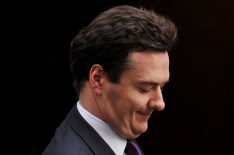
More here.

The government’s welfare reforms seem to be staggering on, despite the concern from the Lords that they’ll harm those who need help most: children and the disabled. But before the Bill goes back to the Commons, and everyone becomes more agitated, let me put the case for the Bill from the perspective of someone it might affect. I have a vested interest in the impending changes to disability benefits, because both my brothers are autistic – one severely so. My family depends on the Disability Living Allowance; caring for my brothers is a full time occupation for both my parents, and without support they simply wouldn’t be able to cope.

Cartoonists like to portray Alex Salmond as a modern-day Braveheart preparing to charge the English enemy. But, in truth, Salmond’s strategy is far more subtle — and dangerous — than that. The SNP leader’s piece in The Guardian today — a preview of the Hugo Young lecture he’s delivering tonight — downplays what a dramatic step independence would be. At times the article reads like an argument for ‘devo max’, not independence. He bemoans that devolution ‘left Scotland with fewer powers than the German Länder, most American states, parts of Spain or, within these islands, the Isle of Man’. Salmond also wants to suggest that not that much
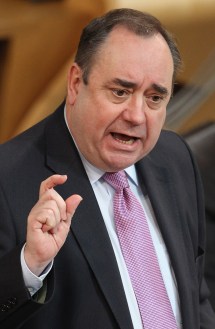
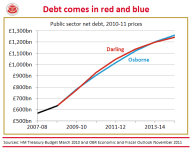
Britain’s national debt rose to over £1 trillion last month, and will never return below this threshold. George Osborne is increasing net debt by 61.5 per cent in real terms over this parliament, more than the 59.9 per cent which Labour proposed when it fought the last election. Here’s how the OBR’s current projections for debt contrast with what Darling proposed in his last Budget: At the time, Osborne said Labour’s debt plan was reckless and unsustainable. I think he owes Alistair Darling a generous apology. Then, Darling said he’d halve the deficit over four years. Too slow, said Osborne. Now, he’s taking five years to do it – as the

Why are you never served by a Londoner in a London branch of Pret A Manger? I asked this in the Telegraph recently, and yesterday’s Evening Standard had a great piece tracking down four who applied, and were rejected without an interview. Some suspect there is a bias in favour of immigrants: if your name doesn’t sound exotic, game over. I doubt that a company like Pret, whose most valued ingredient is the famous enthusiasm of its staff, can afford to discriminate in any way. But the wider point is a very serious one: that British employers have come to prefer immigrants, believing that they work harder. And that a
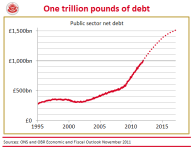
New figures out today show the UK’s public sector net debt at just over £1 trillion for the first time ever. In the first 19 months since it took over, the coalition added £225 billion to the £779 billion debt it inherited. And it’s projected to rack up another £390 billion by the next election.
Rarely can a government have been so pleased to have been defeated. The Tories are, privately, delighted that the Lords have voted to water down the benefit cap, removing child benefit from it. The longer this attempt to cap benefit for non-working households at £26,000 stays in the news, the better it is for the government. It demonstrates to the electorate that they are trying to do something about the injustices of the something for nothing culture. The matter will now returns to the Commons where the coalition is confident it can be reversed. I understand that Nick Clegg remains solid on the issue, despite the fact that Ashdown and
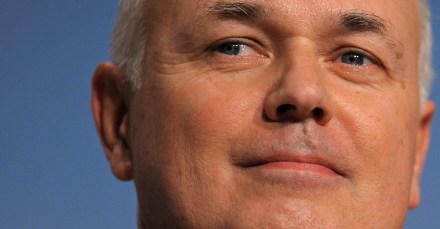
Chris Huhne attacked David Cameron for the EU veto in Cabinet back in December. At the time, one Cabinet minister told me that part of Huhne’s critique was that Cameron had scuppered the chances of a Liberal Democrat MEP, Sharon Bowles, being reelected as chair of the European Parliament’s Economic and Monetary Affairs Committee, which deals with financial services. But Bowles has been reelected. In a Lib Dem press release welcoming this, Nick Clegg declares that: ‘As party leader, I am proud that we have a leading Liberal Democrat in such a prominent and powerful position on the international scene. As UK Deputy Prime Minister, I am delighted and
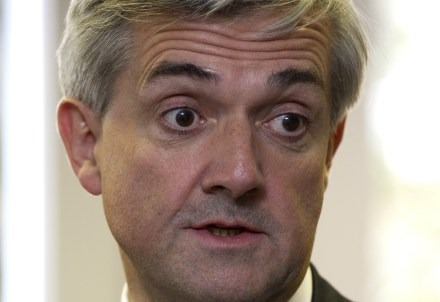
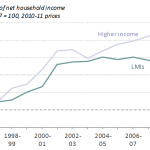
The ‘word of the year’ for 2011 is already featuring prominently in 2012. Yep, the ‘squeezed middle’ is the focus of the Resolution Foundation’s latest report, which they launched in central London earlier today. It’s a fascinating and nicely presented study, and I’d recommend you read it in full: this think tank really is very good at choosing the most revealing metrics to bring some clarity to an often vague debate. But, in the meantime, here are some of the things that stood out to me from today’s event: 1. The squeeze started long before the recession. Talk of the ‘squeezed middle’ often focuses on the impact of the
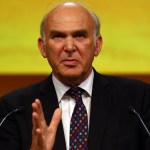
If you were in a particularly soggy mood, you’d almost feel sorry for Chuka Umunna. He’d managed to force Vince Cable into the House this afternoon, to announce the coalition’s plans for curbing executive pay a day earlier than planned, and he must have been feeling pretty swell about it. This was, on paper, the initiative seized; a chance to prise open the Business Secretary’s differences with his Tory colleagues. But, in practice, it was something completely different. In practice, Cable dispatched his opponent with ruthless ease. You might even have found yourself in the unthinkable position of cheering him on. A large part of it was Umunna’s petty, needling
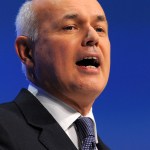
The longer the row over the benefit cap goes on, the better it will be for the Tories. The cap chimes with the public’s sense of fairness. Polls show massive public support for capping benefits at £26,000 a year for non-working households (the cap won’t apply to the disabled or war widows), and if Labour oppose it, they’ll be handing the Tories a stick with which to beat them. Chris Grayling has already declared that tonight’s vote in the Lords is ‘a test of Ed Miliband’s leadership’. Those who argue that the cap isn’t fair because it will force people to move out of their house are missing the point.

Tristram Hunt, the historian and Labour MP, has written a brilliant rebuttal to my piece in the Telegraph last week, in which I said that capitalism is hardwired in Britain’s DNA. Socialism, he says, is also hardwired into our country’s mindset. Writing for Comment Is Free, he says: ‘There is another story of Britishness a long way from the template of Cameron and the Spectator. It is a tradition of redistribution, intervention and socialism equally as compelling as Adam Smith’s “invisible hand” (which, one should remember, was a satirical attack on laissez-faire morality, drawn from Shakespeare’s Macbeth)… [the] British strand of social criticism continued into the 19th century with the
Today’s polls make grim reading for Labour. Even three months ago senior Labour or Tory people wouldn’t have thought that the Tories would be five points ahead at this point in the cycle. Part of Labour’s problem is that its positions require too much explanation. As one Number 10 source jokes, ‘Ed Miliband can do a Rubik’s cube in less time than it takes him to explain his position on the cuts.’ A prime example of these overly complicated policy positions is Labour’s approach to the benefit cap. The leadership says that it is in favour of a cap in principle but against this one in practice. But, I suspect
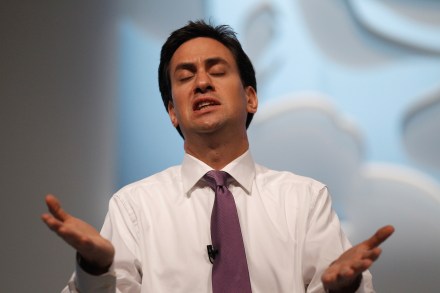
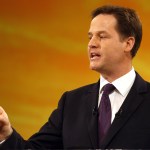
There are Lib Dems everywhere today, CoffeeHousers, and they’re differentiating like crazy. We had Nick Clegg himself on the Andrew Marr show earlier, waxing lukewarm about Boris Island, and there have been moments of assertiveness from his party colleagues as well. Here’s a quick round-up: 1) Chris Huhne. The embattled energy minister hasn’t taken to the airwaves today, but he is omnipresent nonetheless. A good portion of Clegg’s Marr appearance was devoted to him, with the Deputy Prime Minister stressing that ‘he has been crystal clear that he denies any wrong doing’ — but not quashing the idea that Huhne would lose his job if those denials turn out to

Now that the three party leaders have each pronounced on capitalism, domestic politics is returning to its familiar battlegrounds. And there are few more familiar battlegrounds, for this government, than the NHS. Earlier this week a couple of unions came out completely against Andrew Lansley’s health reforms, despite his previous efforts to accommodate their concerns. And now we learn that the Commons health select committee, chaired by the former Tory Health Secretary Stephen Dorrell, is set to criticise those reforms as well. According to the Observer, a report that they’re publishing this week will raise a common complaint: that it’s tricky for the NHS to both reorganise and find efficiencies
The news that for-profit abortion providers are soon to be allowed to advertise on television suggests there is something very wrong with our society. Abortion may well at times be the least worst option. But even those of us who accept this should feel deeply uncomfortable with it being actively promoted on television. The fact that these providers want to advertise on television is revealing of a certain lack of moral seriousness about the work they do. This news is also revealing of how far we have come since the Abortion Act 1967. I doubt that the parliamentarians who voted that legislation through envisaged that 45 years later, what are
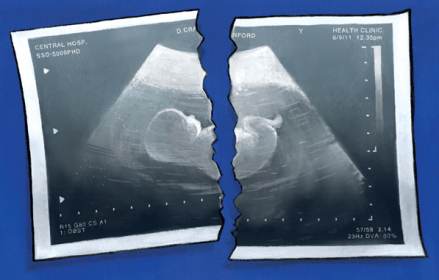
Today’s Huhne news, which Pete blogged earllier, has set off all sorts of reshuffle chatter. At the moment, the expectation is that if a reshuffle was required it would be a limited, Lib Dem only one—their version of the one that followed Liam Fox’s departure. The current favourite to replace Huhne is Ed Davey, Vince Cable’s Lib Dem junior minister in the business department. In terms of a more general reshuffle, I’m hearing that we might have to wait until after Olympics. There is a growing view among those close to the Prime Minister, I’m told, that it would be better to leave ministers in place until then and then do